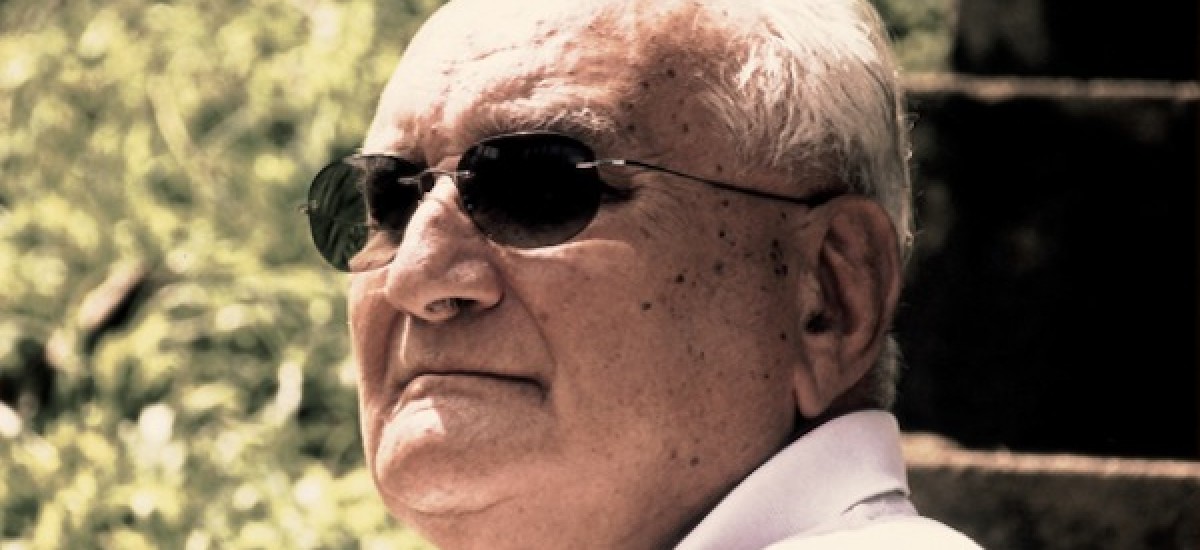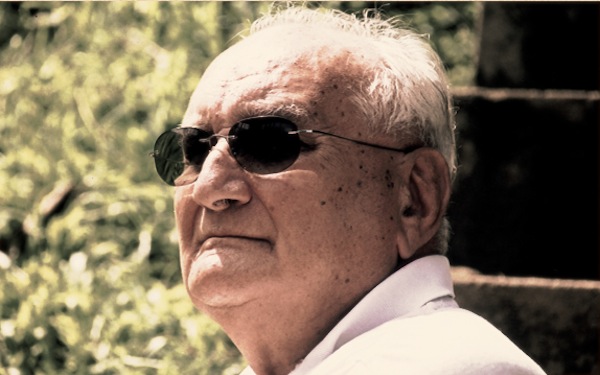Editors note: Philip Revatha (Ray) Wijewardene (1924 – 2010) was an extraordinary Sri Lankan. Educated at two of the most prestigious universities in the world (Cambridgeand Harvard), he excelled in many different areas of human endeavour: agriculture, aviation, engineering design, inventions, renewable energy technologies and water sports. For more information, please visit www.raywijewardene.net)
Just as the Global Positioning System (GPS) kicked off, an aviator I knew had a very bright idea. After all he was waiting for the day when navigation would become child’s play. With GPS it had just become so. From then onwards, the heavens would guide our position on earth.
Gone were the days of ever changing road names, airport names and country names. Our location could now be given in numbers beyond the tampering of fickle idiotic and transient mortals, intolerant of the past and eager to mark their presence. To celebrate his welcome transformation, he re-printed his name card. But this time, instead of a street address, it had a GPS location – with longitude and latitude. Soon, some very strange people appeared at his doorstep armed with bulky electronic trackers. They were delighted to locate the man, based solely on his GPS location. Gleefully they stood in awe of this great man – who had thought of this super cool idea. He became soon the subject of regular discovery. But being discovered on a regular basis had its down side. It was taxing. “I can’t stand these nut cases anymore” I remember him yell. He could no longer be at the butt end of so many Easter bunny hunts. Though he would have liked to, he was too polite to shoo them away. Annoyed, irritated and angry he quickly re-printed his cards with his earthly location that was once a more elegant Turret Road and now Dharmapala Mawatha devoid of both Dharma and elegance.
Live it
Ray’s life was a catalogue of such experiences. Some were funny, many were sad, but all of them deeply meaningful. Ray was a man who lived his beliefs. Living one’s beliefs is different from preaching them. Preaching is easy. Ray once told me that as an agricultural advisor, a peasant farmer once refused to try out the new crop that he was proposing. He had told Ray that “I will not take advice from those whose fate is not tied to their advice”. A profound statement, from a peasant farmer whose family would have starved had the crops failed. This rebuttal made an impression on Ray. In the old days of aviation, there were no “test pilots”. Those who designed their contraptions flew them, that way Ray would say, with his quirky smile – “ bad designers never came back”.
Building a craft and flying it yourself involved putting your life on the line. It required confidence in your own understanding. Ray was one such person, willing to strap himself to his home-built contraptions and take to the air, taking risks that others would gladly pay to avoid. All things he did, he did with passion, in total belief, commitment and faith in his own thinking.
You fellows
Every time I went to see him (mostly unannounced) in his study den/office, on-top of his garage, I prepared myself for a familiar ritual. It would start with some form of verbal abuse, often starting with “you fellows”. You fellows could mean one of two things. It could mean that he is having trouble with his computer for which all young people are collectively responsible, especially if they knew something about computers. Ray is what is called a “Techno Geek”. Technology fascinated him no end. In his old age he was often frustrated by his inability to keep up with all the amazing developments, envious of the younger generation living in the techno-geek world that was increasingly out of reach for him.
Secondly, “You fellows” could also mean something else – Tamils. He was always envious not of the competitive educated Tamils who irked his generation, but of the Jaffna mechanics. Because they, according to him, unlike the Singhalese mechanics knew how to arrange tools and keep a workshop in order. Ray at heart was a Nationalist. Not the mono-cultural, moron type or the over educated blinkered type, but a rare and extinct type.
Whatever, “You fellows” meant, he would curse me for barging in unannounced, quickly finish his work and ring the bell under his table and order a glass of thambili if it is mid-day or bourbon if it is late evening. The conversations that would follow would be a mixture of wonderful thoughts, words of wisdom and bad words in unpredictable order. Through these conversations I began to understand the misplaced brilliances, determination and rare passion that consumed a good part of his life.
Love all things that fly
Ray loved all things that flew. Birds, bats, bees and machines. Of all things that flew, he loved the dragon fly the most because it could hover like a helicopter, fly backwards and do aerobatics. The humming bird came next and his homebuilt plane was named after it. He loved the pelicans that soared on top of the BeiraLake as they rode the thermal waves of the air that he could feel as he flew past them in his “putuput” plane.
To my surprised he had all his planes blessed – even the ones that fell from the sky. He was blessed, he said, to fall into the muddy paddy field. That saved him. It puzzled me that he claimed to be a Buddhist, tie a ‘noola’ around his wrist and seek the blessings of those with poor track records. He would also consult astrologists.
Budda did not recommend the Sanga
I was always puzzled by religious believes. I always thought him to be a clear thinking engineer. He claimed to be a Buddhist, but when I pointed out the pathetic track record in Sri Lanka and the embarrassment it brings to its founder. He attributed it to something that was not in Buddhism. He claimed that “ Sangang charanang gachchami” was a later insertion of the self interested clergy and that the Buddha had left no such instructions. He quoted something from the Dhamapadha that I noted down: “Believe nothing. No matter where you read it, or who said it, even if I have said it, unless it agrees with your own reason and your own common sense.” Ray lived by this definition and in that sense he was a true Buddhist.
Inventions
To his credit, Ray fathered a few inventions. I outline two of the many.

Serrated blade: A common carpenter’s tool all over the world. A piece of sheet metal stamped with hundreds of serrated cutting edges. An original invention without precedence as it scrapes the wood with hundreds of tiny sharp blades, allows the wood shavings to escape without clogging the blades. This was patented and is still manufactured by Stanley tools.

Two wheeled tractor: He found the heavy western tractors thoroughly unsuitable for the paddy fields. They were expensive, heavy and sank in the mud. He developed the two wheel tractor, light and affordable, which was massively successful in the paddy fields of Asia. It was initially manufactured and marketed globally by Land Master, latter copied by Japanese and Chinese companies.
Suddhu Mahathaya
Whatever Ray thought of himself, the locals thought of him as “Suddu mahathaya”. It irritated him immensely. Many mistook him for a foreigner, including the air traffic controllers in Ratmalana. Ray was once asking permissions to land in English using the right terminology. But the “Aha.. aha ..” response irritated him. The thing about Ray is that he stammered. The angrier he got the more he stammered. He was making no progress. Out of sheer frustration he broke into eloquent native lingo. Hi his native credentials were clearly established and I was told he got immediate permission to land.
Phoney Academics
Ray hated academics, mainly due to their lack of practicality and the lack of relevance to local issues. But most importantly, because of their obsession with publications that had no local relevance. For Ray research needed to be grounded in local conditions, to address local needs and preferably to reduce the components of dependence. He saw that local academics were bent the wrong way focusing on publications and building dependency. In private, he called them phoney. I always wondered how he could be Vice Chancellor at the same time. I guess he was diplomatic. His distaste for them, sadly prevented him from publishing his learning that came out of countless experiments.
Some original thoughts
There are a number of observations that Ray made that I believe are of great significance. One was about the use of water in agriculture – which he felt was primarily for weed killing. He felt that the roots of big trees helped maintain moisture content and that mono culture was injurious and should be replaced. He made an amazing observation about colonialism from an energy point of view. Colonialism, he said, was about robbing the sun’s energy that shone through the colonial world producing timber and oil (from plants buried). He was fascinated by Malay architecture. He very much liked houses on stilts – which stood above ground. They were ideal for tropical climates as they essentially sieved in the air to provide ventilation from all sides including the floor. With the architect Sunela Jayewardene, he converted one of the old water tank towers to an “aththalama” to experience life amongst the tree tops.
Independence
“ Great men “ Ray would say also “have great flaws” . If Ray had one, it was his love of independence. Born in the 20s to an English mother and a Sinhalese father Ray had a rare upbringing and the rare privilege of a Cambridge education. His formative years were possibly influenced heavily by the attempts of the colonies to break free and be independent. Ray was forever troubled by our dependence – mostly by our dependence on imported oil (which exceeds our net exports) . He was troubled by our dependence in thinking – in following the advice of others. He, like the others of his generation of similar calibre thought that we could do better, that we could save ourselves from the associated environmental disaster and paralytic dependency. His life was largely dedicated to ways by which we could escape our predicament – not through claiming cultural or spiritual high ground (despite all evidence against it), but by developing ways of building a suitable sustainable future. He believed that he could, by setting a good example wean the island out of its dependency. But the country he so loved had by then descended depressingly. I am sure that many of his generation watched in pain the dreams they had for the Island turn into a disgraceful spectacle – where dependency would have possibly been a better option.
Sustainable agriculture
Rays education, knowledge and passion helped him to see the world holistically and its problems as interconnected. Ray was a polymath. Blessed with a great understanding of the physical, environment, commercial issues all gained through experiences, he was able to synthesize new possibilities towards building a ecological utopia which he brought to the verge of realization at his own expense through a series of experiments in his little coconut estate – seeking to generate its own energy, fertilise its own soil and generates its own revenue through ecologically informed practices. He lived his life attempting to create energy and fertiliser independence and prove the commercial and agricultural and environment viability of sustainable agriculture single handedly. His estate was his lab.
Unfortunately for Ray, he saw himself as a Sri Lankan first. He was locked on to self dependence – to producing our own food and our own electricity. He had developed a large repository of practical knowledge through his many years of experimentation – which I always felt would be lost after his demise. Every time I visited his estate in the visitors’ note book full of admiring comments – I have left notes (much to his annoyance), that most of his experiments remain unrecorded. But Ray was not interested in making his learning known except to the few who were around him. His disdain for academia did not help. He believed in setting examples. He was only keen that his methods be applied locally. It delighted him to take visitors to his estate and show them what can be achieved. How productivity can be achieved without polluting the planet. He was chasing a dream. In that dream there was an independent Island that is self-sufficient and self-reliant that synthesized the best of Buddhist philosophy and rational thought.


